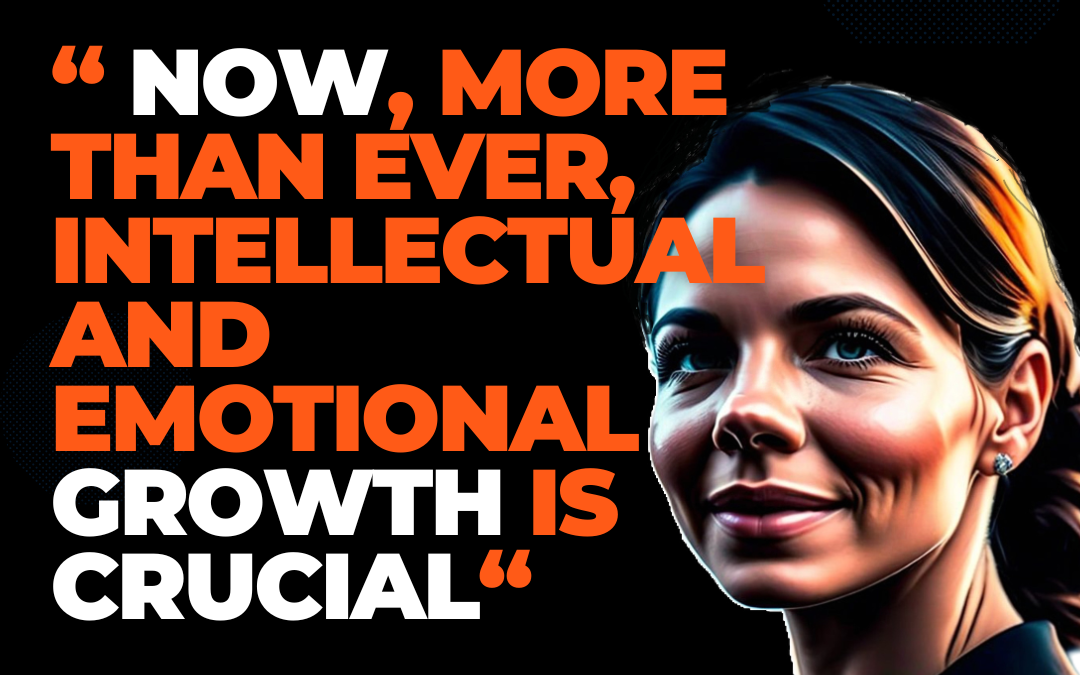
Power Up Yourself: Growing Smarter in the Age of AI | #7
We’re living in a time where tons of money and brainpower are being poured into making machines smarter. But what about us? Isn’t it a bit sad to think that computers might get better at performing tasks that were once thought to be the sole domain of human intellect? The contrast between the resources poured into AI and those dedicated to advancing human intelligence is stark—and frankly, quite concerning.
As machines become more articulate, capable of analytical thinking, critical reasoning, and even mimicking human chitchat, we find our own modes of communication being simplified to tweets, memes, emojis, and stickers. This trend is not just a reflection of changing social norms but a signal that now, more than ever, investing in our intellectual and emotional growth is crucial.
The Role of Parents and Educators
For parents and educators, the challenge is twofold. Not only do we need to adapt to this technological evolution ourselves, but we also have the critical task of preparing our children to navigate it successfully. The first step is leading by example. Embrace a mindset of continuous learning—read, explore, and educate yourself on the latest developments in science and technology. Your quest for knowledge will not only enrich your own life but also serve as a powerful model for your children.
Remember, education is not just about formal schooling. It’s about fostering curiosity, critical thinking, and the ability to question and understand the world around us. The beauty of the digital age is that learning has never been more accessible. The internet is teeming with free resources covering virtually any topic imaginable. Whether it’s a new language, programming, history, or science, there’s an opportunity to expand your knowledge at your fingertips.
Children are inherently observant, absorbing the behaviors and attitudes of those around them. Telling them to value learning is one thing, but showing them through your actions—your dedication to personal growth and your enthusiasm for acquiring new knowledge—speaks volumes more.
Encouraging Critical Thinking
In addition to promoting intellectual curiosity, it’s crucial to teach children how to think critically about the information they encounter. Critical thinking is more than just a buzzword; it’s a fundamental skill in decoding the vast amount of information we encounter daily. In an age where anyone can publish their thoughts and findings online, discerning fact from fiction has become a vital skill. Encouraging them to ask questions like, “Is this information reliable?” and “What might be the motivation behind this message?” helps them to make informed decisions.
Knowing Yourself and Emotional Awareness
Equally important is helping children navigate their emotions and mental health. The digital world can be overwhelming, with constant exposure to new information and social pressures. Teaching them to know themselves, understand, and manage their emotions is a foundational aspect of education that will prepare them for the complexities of adult life.
Transforming Education for the Future
Schools and governments play a pivotal role in adapting education to better suit the needs of an AI-integrated society. Traditional methods of teaching and assessment, such as rote homework assignments and standardized exams, are becoming less relevant. Instead, there’s a growing need to emphasize collaborative learning, where students work together on projects that foster creativity, problem-solving, and interpersonal skills.
Introducing subjects that focus on relationship building, teamwork, and emotional well-being—such as “social health”—could revolutionize the educational landscape. Moreover, incorporating AI literacy from an early age prepares students not just to use technology, but to understand its implications, to communicate effectively with AI, and to critically assess the ethical dimensions of technological advancements.
The Path Forward
As we navigate through the AI revolution, it’s essential to remember that technology is a tool meant to enhance human capability, not replace it. Investing in our intellectual and emotional growth ensures that we remain at the forefront of innovation, capable of guiding AI development in ways that enrich society. It’s about creating a future where humans and machines collaborate, each amplifying the strengths of the other.
Let’s make sure we’re not just keeping up with technology, but also investing in our own intelligence and emotional well-being. By committing to our own continuous learning, self-development, and supporting the next generation in doing the same, we can ensure that humanity grows smarter and stronger alongside our machine counterparts.
For more insights into blending personal growth with technological advancement, subscribe to my newsletter.

Recent Comments